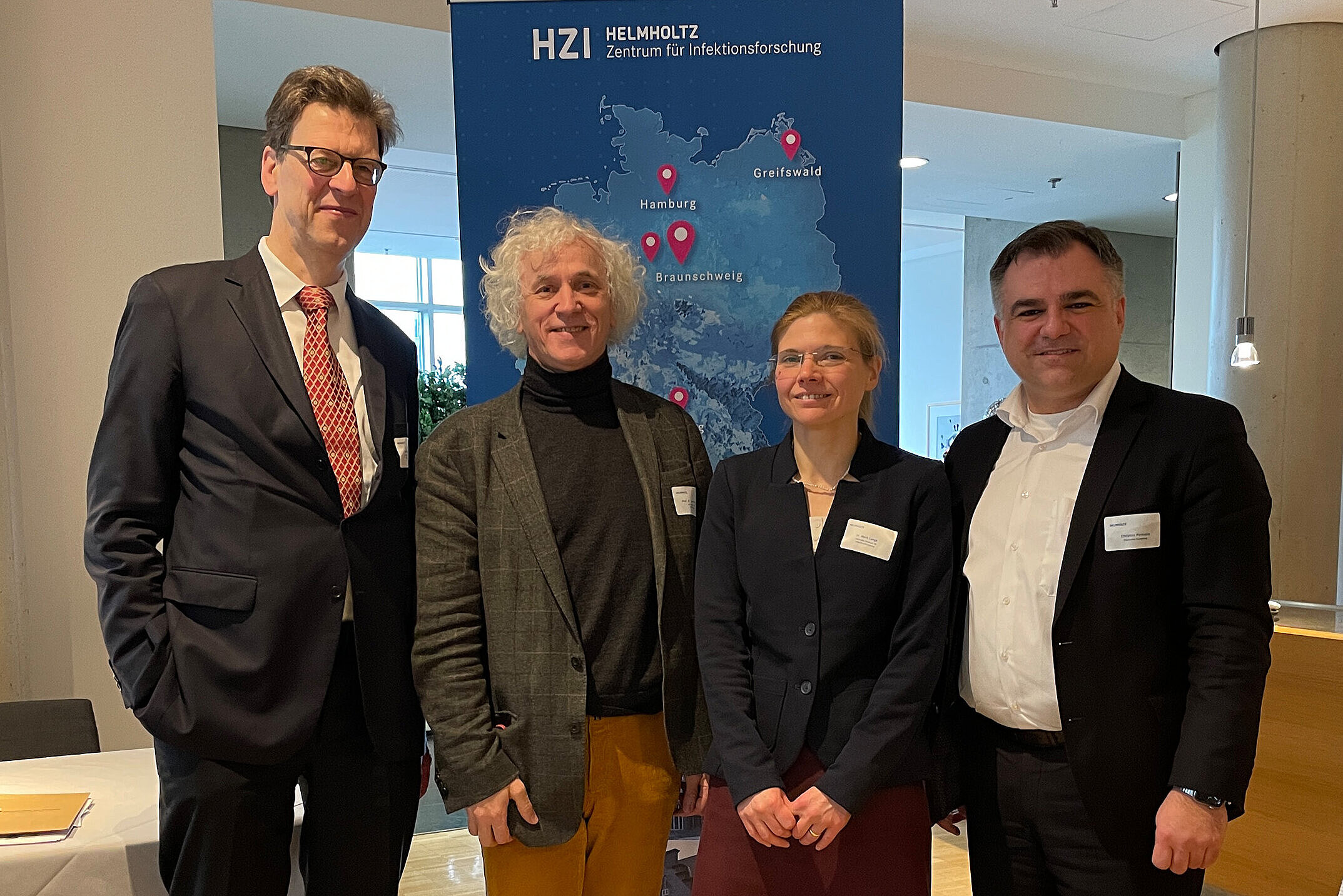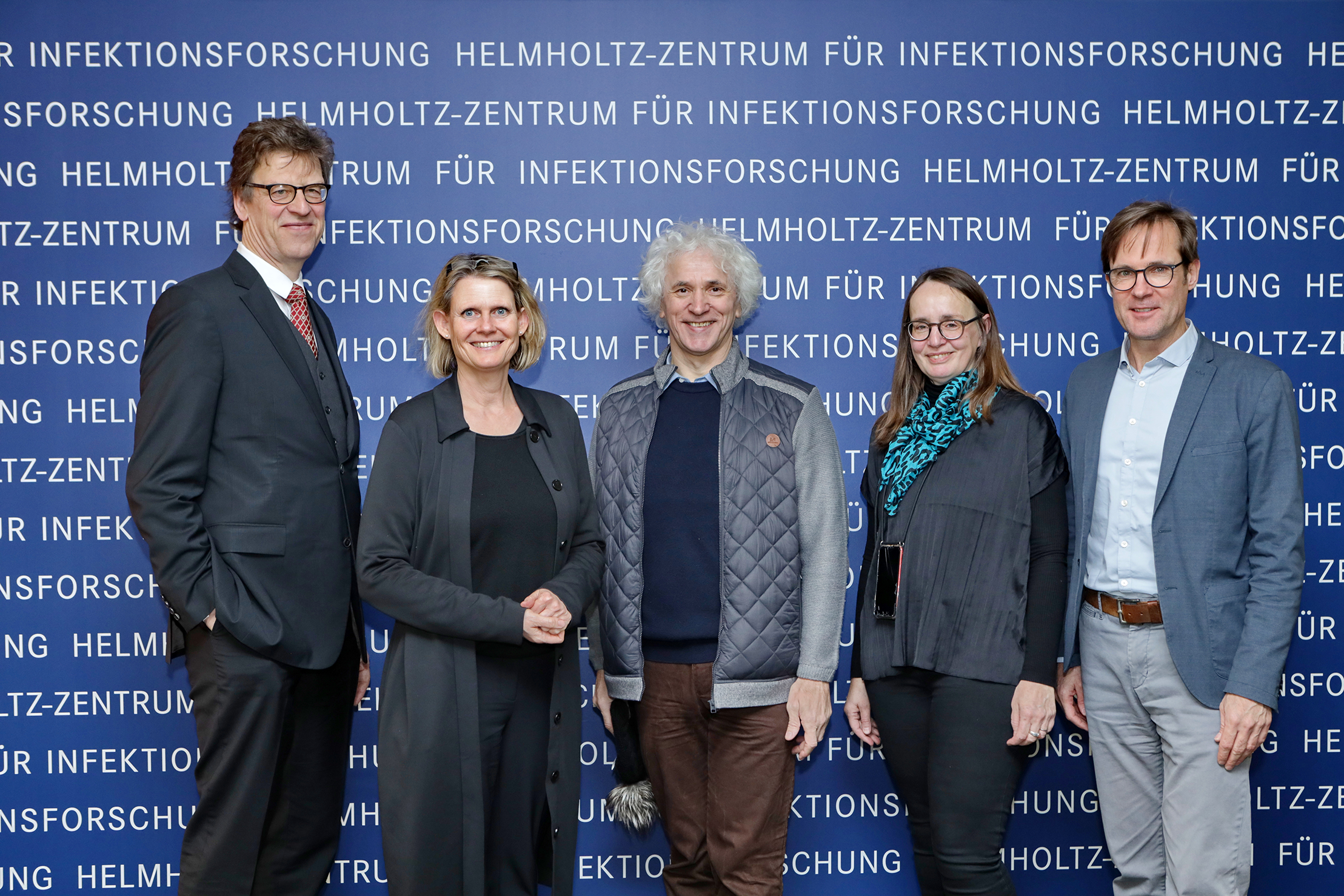Even though the COVID-19 pandemic has been overcome, in a world with constantly changing ecosystems, driven by climate change, we must prepare for further, perhaps even more dangerous scenarios caused by pathogenic viruses or bacteria. All sectors of society must therefore continue to optimize their infrastructures and existing preventive measures in order to minimize the number of deaths and negative medium or long-term consequences of infectious diseases and countermeasures in the event of a renewed outbreak of infection.
At the beginning of the event, Josef Penninger and Berit Lange presented the significant contributions that the HZI can make to this and how effective and successful internationally networked research is, for example in the areas of new anti-infectives, molecular diagnostics, infection epidemiology and vaccine research. Penninger also spoke about the HZI project MICROSTAR ("Microbial Stargazing - Research into Resilience Mechanisms of Microbes and Humans"), which he heads and which focuses on research into bacteria and viruses and their resilience mechanisms against external disturbances and changed conditions.
Berit Lange then spoke about the challenges posed by future pandemics and the HZI's contributions to pandemic resilience. The term stands for the ability of a society and its healthcare system to prepare for a pandemic or epidemic, contain it at an early stage and manage it optimally or, at best, prevent it altogether. To this end, it is necessary to establish sustainable, networked and efficient infection-specific research infrastructures in order to quickly identify the dynamics and disease burden of epidemics and limit them in a targeted manner. Such infrastructures include, for example, early warning systems, population-based and clinical cohorts, efficient drug and vaccine platforms and digital tools.
After the keynote speeches, the scientists discussed with the representatives of the Bundestag the possibilities and ways of tackling the challenges posed by infections together. Other participants at the event were Christian Scherf, Administrative Director of the HZI, Prof. Thomas Pietschmann, Deputy Scientific Director of the HZI, and Prof. Otmar D. Wiestler, President of the Helmholtz Association.





